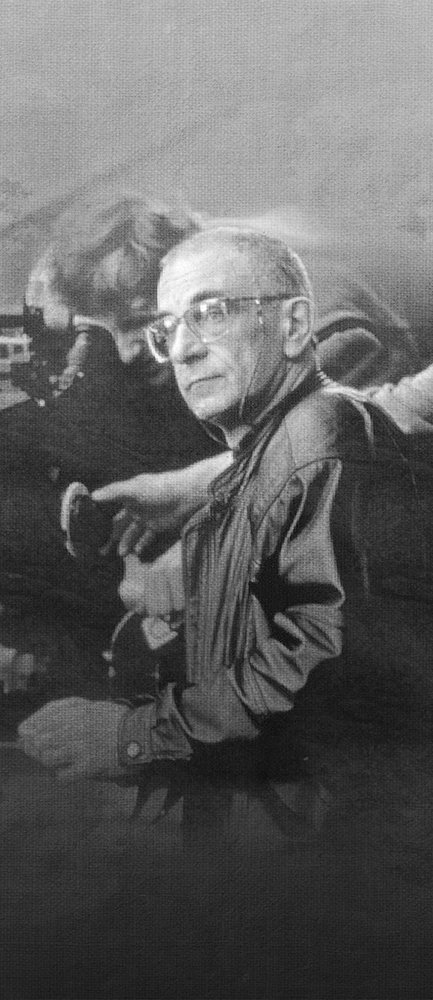
Krzysztof Kieślowski
director and screenwriter
(born on 27.06.1941 in Warsaw, died on 13.03.1996 in Warsaw)
It is a name familiar today to the whole cultural Europe (...) His films are awarded at the biggest festivals - from Cannes to Venice, Berlin, Chicago (...) from Strasbourg to New York, Hong Kong, Jerusalem - Stanislaw Zawiśliński about Krzysztof Kieślowski in the book Kieślowski No End from 1994.
Krzysztof Kieślowski remains a genius of Polish cinematography. Although more than twenty years have passed since the director's death, his films still enjoy enormous popularity around the world, surprising with their timelessness and timeliness of their message.
Most of Kieślowski's professional life was associated with Warsaw. It was here that he attended the High School of Theatre Technology, followed by his work as a dresser at the Contemporary Theatre, serving such famous actors as Tadeusz Łomnicki and Zbigniew Zapasiewicz.
The future director studied at the Łódź Film School, graduating in 1968. That same year he made his debut with his first documentary film entitled The Photograph. The picture has the form of reportage, unravelling the story of two boys from an old war photography.
His interest in life of the ordinary people and presenting their problems, ambitions and aspirations in Poland of the time, are constant themes in Kieślowski's films. Until 1983 the director was involved with the Warsaw Documentary Film Studio, directing some of its most memorable films such as From a Night Porter's Point of View (1977) and Talking Heads (1980). In the eighties, due to the tightening of the censorship requirements, Kieślowski abandoned creating documentary films and concentrated on feature films.
Kieślowski's debuted as a feature director in 1973 (Pedestrian Subway), but audiences find his works from the next decade most memorable. Kieślowski received great recognition for his series of television films entitled The Decalogue (1988), which present human moral dilemmas, reflecting the Ten Commandments. All episodes of the series are marked by director's melancholic character, while each retaining a distinct style of presenting its content - from melodrama (Decalogue III), through violent action movie (Decalogue V), ending with comedy and farce (Decalogue X).
Two feature film based on The Decalogue - A Short Film About Killing and A Short Film About Love - were popular abroad as well, making Kieślowski a household name in Europe and even around the world. His fame was confirmed by his next films, created as Polish-French co-productions - including The Double Life of Veronique from 1991 and the award-winning series Three Colours (1993-1994). For directing the film Three Colours: Red Kieślowski received an Academy Award nomination.
In 1994 Kieślowski finally retired from film-making. Though at the end of his life he was planning to return to the profession, this plan never materialized. Krzysztof Kieślowski died in 1996. He is buried at the Powązki Cemetery in Warsaw.
Do you know?
- Kieślowski began his directing career with school etudes entitled Tram and Office (1966).
- Kieślowski was a member of the jury at the Cannes Film Festival in 1989.
- In 1990 he was made an honorary member of the British Film Institute for his outstanding creative contribution to film culture.
- In 1995 Kieślowski was also accepted to the Film Academy in the United States.
- Besides films, Kieślowski also directed television shows. He staged his own theatre play entitled Curriculum vitae in 1978 at the Stary Teatr in Kraków.
- The director became the hero of several documentaries, including Class cinema of Dominique Rabourdin (1996), Krzysztof Wierzbicki's Amateur (1999) and by Maria Zmarz-Koczanowicz (2005).
- Kieślowski screenplay were used for several films after his death, including Big Beast directed by Jerzy Stuhr (2000) and the German-Italian film Heaven (2001).






